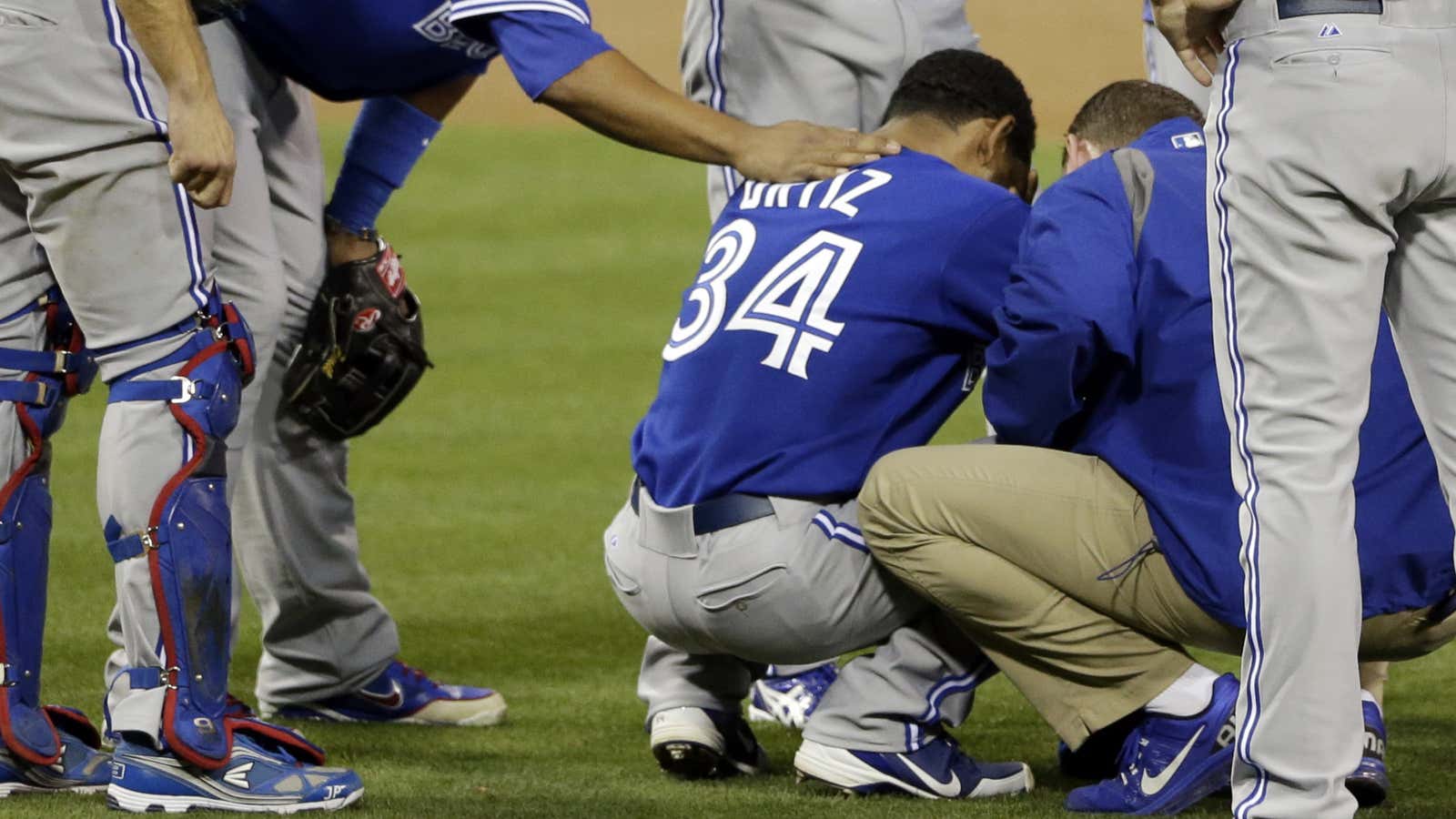The higher up the ladder you climb, the more it hurts if you fall—and the harder it is to regain your standing.
Based on three studies of university students and baseball players, researchers concluded that high achievers who hit a major career setback also “experience more self-threat and subsequent difficulty performing well.”
Their paper, “Falling from Great (and not So Great) Heights: Initial Status Position Influences Performance after Status Loss,” appears in the February/March issue of the Academy of Management Journal. Authored by Jennifer Carson Marr, an assistant professor of organizational behavior at Georgia Institute of Technology and Stefan Thau, formerly of the London Business School and now at Insead, the findings are based on one study of salary arbitration in Major League Baseball and two behavioral experiments with university students.
Marr’s conclusion: “Even top performers—in fact, especially top performers—are prone to make mistakes and suffer poor performance in the aftermath of status loss.”
How does this apply to the workplace? Because star performers and executives may come to rely on the respect and accolades they receive, they may have trouble regaining their momentum and strong performance after a setback. This could derail not only their careers but projects or people they still oversee. Impaired performance could hinder decision-making and efforts to regain their status, the authors say.
The only way to win after a career misstep is to stage a comeback. And yet the reverse occurs in the year after a baseball player’s fall: Both on-base and slugging percentages, two measures used to measure players’ performance, declined more for high-status players than others in the year after lost status. The authors find this “particularly interesting because our sample is a group of professional athletes whose livelihood and future status depends on their performance on the field, and so they should be particularly motivated to play well to regain status.”
The study relied on data on each baseball player (except pitchers, who have different performance criteria) who went through salary arbitration from 1974 to 2011—there were 199 in all—and looked at their key statistics in the two years before and one year after winning or losing arbitrations. To measure status, the authors found how often players were chosen for All-Star Games or won awards such as the Golden Glove.
High status players’ performance “declined significantly” after losing status in an arbitration over salaries, while low-status players performances were unaffected by similar setbacks.
Marr’s research looks at how motivational goals and loss of status influence behavior and cognitions. Her other research indicates gains or declines in status as well as rank may affect others’ judgments and concludes that social status is “more nuanced and dynamic.”
In the two university studies, students randomly were assigned high- or low-status projects in small groups, and lost their status arbitrarily, so that could be distinguished from other factors. Afterward, students who started with a high-status position then lost it performed more poorly on a word exercise than other participants, including those who had lower status and lost some.
There are ways, though, to mitigate the fall. ”You can reduce the harm from status loss by taking some time to think about a valued relationship and, in general, by recognizing the value of meaningful relationships or aspects of one’s life outside of work,” Marr said, sharing lessons she drew from her research. “These elements can compensate for threats to the self that loss of status can entail. Another way to achieve this may be by looking to change jobs, to find work at another organization where you feel respected.”
